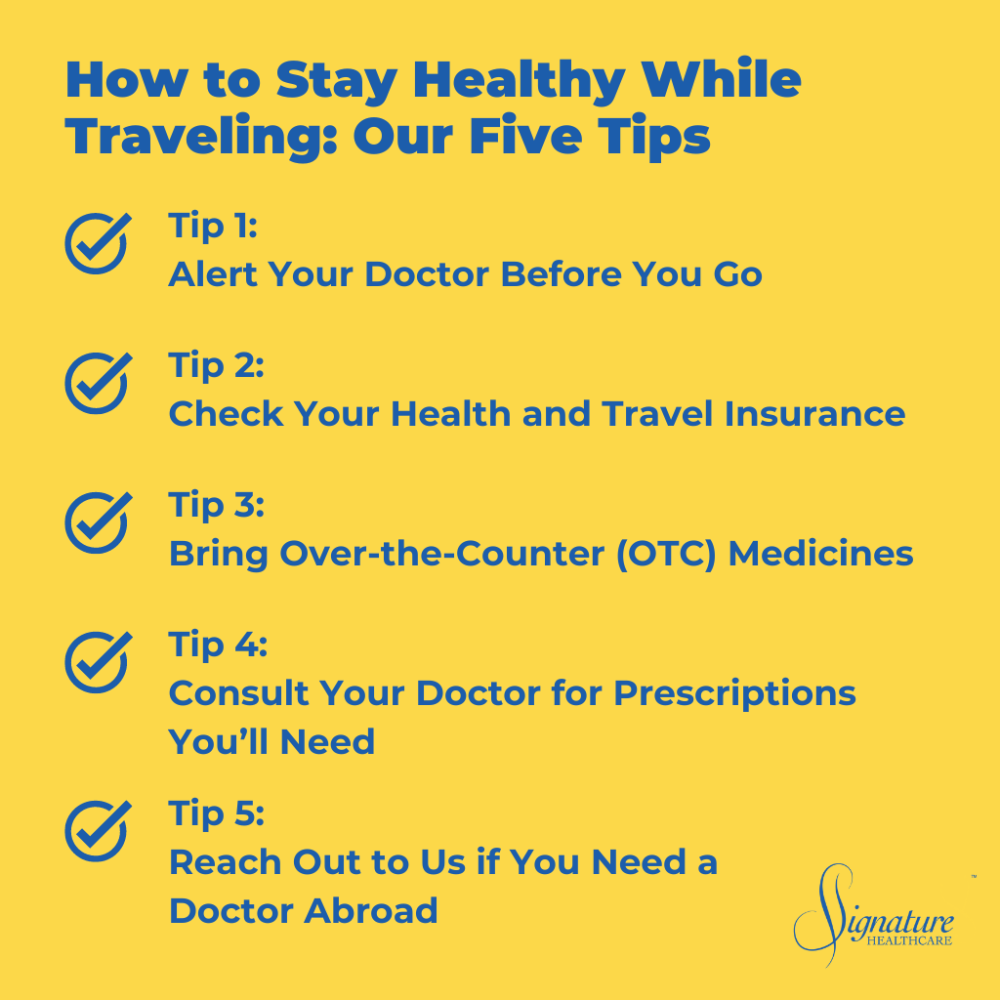Okay, let’s talk about staying healthy when you’re bouncing around different countries. I’ve done a fair bit of international travel myself, and trust me, getting sick far from home is the absolute worst. Ruined a whole trip to Thailand for me once. So, I got serious about figuring out how to avoid that.

Before I Even Pack My Bags
First thing I do, way before the trip, is book an appointment with my doctor. Usually like 4-6 weeks ahead. I tell them exactly where I’m going and for how long. We talk about any shots I might need. Yellow fever, typhoid, hepatitis A… depends on the destination, right? I make sure all my routine vaccinations are up-to-date too.
Then, I get prescriptions sorted. If I take regular medication, I make sure I have enough for the whole trip, plus a bit extra just in case. Super important: I always get a copy of the prescription from my doctor, sometimes even a letter explaining why I need the meds. Some countries are strict about that stuff. I pack meds in my carry-on, never checked luggage. Losing luggage is bad enough, losing essential medicine? Nightmare.
I also check out resources like the CDC website or my government’s travel health advisories. They list specific risks for the places I’m visiting – stuff like malaria zones, Zika virus areas, or recent outbreaks. That helps me know what precautions are really necessary.
And travel insurance, man, don’t skip this. I learned this the hard way too (though not medically, thankfully). I make sure my policy has solid medical coverage, including emergency evacuation. Getting seriously sick or injured abroad can cost a fortune. It’s just not worth the risk to go without it.
Oh, and I put together a basic first-aid kit. Nothing fancy. Plasters, antiseptic wipes, pain relievers (like ibuprofen or paracetamol), anti-diarrhoea meds (loperamide is a lifesaver sometimes), antihistamines for allergies or bites, maybe some motion sickness pills if it’s gonna be a rough journey. Stuff I know how to use.

Getting There and Staying There
On the plane, I drink water like it’s my job. Airplane air is super drying, and dehydration makes jet lag worse and can make you feel generally crappy. I avoid too much caffeine or booze on the flight for the same reason. I also try to get up and walk around the cabin every hour or two. Helps prevent blood clots, which can be a serious thing on long flights.
Once I arrive, food and water safety is top of my list. This is where lots of people slip up.
- Water: I stick to sealed bottled water. Always. That includes for brushing my teeth in some places. I also skip ice in drinks unless I’m certain it’s made from purified water. Better safe than sorry.
- Food: I’m careful about street food. If it’s busy, looks fresh, and is cooked piping hot right in front of me, I might give it a try. But peeling fruit myself is a must. I generally avoid raw salads or anything that might have been washed in tap water. Cooked food is usually the safest bet. I got hit with a nasty bug from a dodgy buffet once, spent two days locked in my hotel room. Not fun.
Hygiene is basic but crucial. I wash my hands constantly with soap and water, especially before eating. If soap and water aren’t available, I always have a small bottle of hand sanitizer gel with me. Everywhere.
Depending on the destination, bugs can be a major issue. Mosquitos carrying malaria, dengue, Zika… no thanks. I use insect repellent with DEET, especially during dawn and dusk when mosquitos are most active. If I’m staying somewhere basic in a risky area, I might even bring a mosquito net for sleeping.
Sun protection! Sounds obvious, but it’s easy to get scorched when you’re out exploring all day. I always pack and use high-SPF sunscreen, wear a hat, and sunglasses. Getting badly sunburned can actually make you feel sick and run down.

Finally, I try not to push myself too hard, especially the first couple of days. Jet lag is real. I listen to my body, get enough sleep, and ease into the new time zone and environment. Trying to do everything on day one is a recipe for exhaustion, which lowers your immune system.
After Coming Home
Even after I get back, I pay attention to how I’m feeling for a couple of weeks. If I develop a fever or any weird symptoms, I go see my doctor right away and make sure to tell them exactly where I traveled. Some illnesses can take a while to show up.
So yeah, that’s pretty much my routine. It sounds like a lot, but it becomes second nature. It’s just about being prepared and sensible. Taking these steps lets me actually relax and enjoy my travels without constantly worrying about getting sick. It’s made a huge difference for me.








